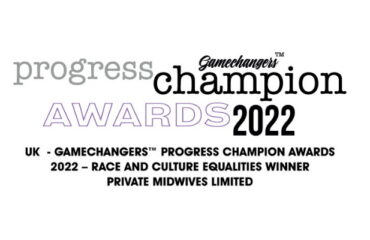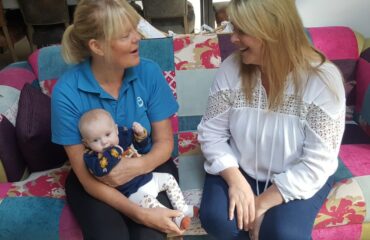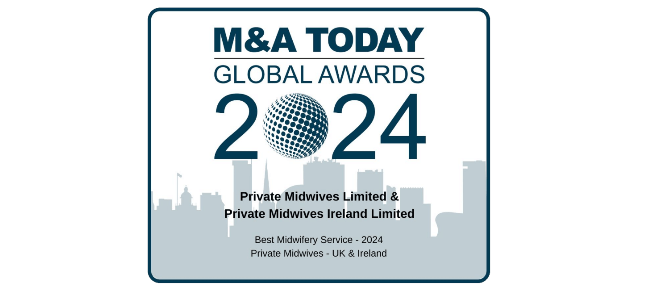
There are many reasons why women might choose a homebirth. No car rides in labour, home comforts throughout, no limitations on birth supporters, feeling more empowered as you labour in your own space, to name but a few. Top of the list though is that, contrary to public belief, it is a very safe option for most women.
Two recent systematic reviews (Hutton et al 2019 & Reitsma et al 2020) that analysed research covering over 500,000 planned homebirths and directly compared them to intended hospital births, found that women who planned a homebirth (even if they didn’t birth at home) were less likely to have a caesarean or instrumental birth , an epidural, a serious perineal trauma (3rd or 4th degree tear), to be given syntocinon to speed up labour, or to get an infection, and were no more likely to have a big bleed following birth. These findings were consistent regardless of whether it was the first time a woman had given birth, or if they birthed before. Survival rates for newborns were no different between women that birthed at home versus hospital, and babies were less likely to need prolonged resuscitation at a homebirth.
With all this in mind you might be thinking that a homebirth is something that you would like to consider for your labour and birth, in which case it’s a great idea to think about planning for a homebirth and whether homebirth is right for you and your individual circumstances.
Can you have a homebirth after a C-section?
Many mothers are considering a homebirth after a previous caesarean birth, sometimes called a HBAC. Bayrampour et al (2021) compared mothers that planned a homebirth after a previous caesarean birth to those that planned a vaginal birth after caesarean in hospital, sometimes called a VBAC. They found that mothers who planned for a homebirth were 39% less likely to end up with another caesarean birth.
It is important to get information about your previous caesarean birth. It’s rare, but there may have been complications that mean planning for a VBAC regardless of setting would not be advisable.
We recommend talking to your current or prospective care provider about whether VBAC or HBAC is right for you and if so, how they can best support you.
Can you have a homebirth at 36 weeks?
It is possible to have a homebirth at 36 week, but there are considerations to bear in mind. A baby born before 37 weeks gestation is usually seen as premature. You might want to consider that there a slight increased chance of your baby needing some support with their breathing at birth, as they may be a little less prepared to transition to life outside of the womb. It is difficult to get exact numbers for babies requiring resuscitation based solely on their gestation. Bjorland et al (2019) found that about 10% of babies born between 34-36+6 weeks gestation needed support with breathing after birth, compared to 4.6% of babies born after 37 weeks. Your care provider may suggest that if you do give birth at home at 36 weeks, that you attend the hospital after birth so the baby can be reviewed by a doctor. You may also want to consider that a baby born at this gestation has less reserves and may need some extra support with feeding.
Ultimately it is your choice whether to stay at home for the birth & immediate postnatal care, but it’s important to discuss this with your midwife as regional and national limitations may apply.
Can you have a homebirth with gestational diabetes?
If you are diagnosed with gestational diabetes there may be a chance of further complications. However, blood sugar control through diet and lifestyle changes has been shown to significantly reduce the likelihood of any adverse events. Working with a midwife to ensure your blood sugars are well controlled is advisable and may lead to homebirth being a safe choice for you.
Considering how much support you have needed to stabilise your blood sugars can be a good indication of where might be the best place to labour and birth your baby. If diet and lifestyle changes have resulted in good control within minimal intervention perhaps homebirth may be right for you. If you have needed more support with medication and/or hospital admissions perhaps a hospital environment would be more beneficial for you and your baby.
Again, we recommend that you discuss your options with your care provider to see what support they can offer. Here, at Private Midwives we frequently support mothers with gestational diabetes to plan a homebirth.
Can you have a homebirth with pre-eclampsia?
This is one of the few situations where a homebirth would not be advisable. This is because there is no access to further medication at home to help control your blood pressure, as the medication you take during pregnancy may not be enough to manage it during labour. Preeclampsia can also sometimes develop into eclampsia, which is a medical emergency that requires the expertise of anaesthetists and obstetricians, as well as midwives to rectify to ensure the safety of both mother & baby.
Can you have a homebirth with twins?
A twin homebirth is sometimes possible. You may want to consider that continuous monitoring is recommended for twins during labour, and this is not possible at home. Instead, they would be monitored “intermittently”, in a similar way to what you may have experienced during your antenatal appointments only more frequently. It is also more likely that you will start to labour earlier, so consider what gestation you would be happy to give birth at home from. The position of your babies can also impact your decision-making. Your care provider may not feel able to support you at home as it is essential that they have experience and feel confident in facilitating twin birth. So early, open discussion is recommended, allowing you to consider your options fully.
Can you be induced and have a homebirth?
It would be very unusual for a care provider to support a homebirth if an induction has started (not including having had a membrane sweep), as there is an increased chance of medical interventions being required once the induction process has commenced. Occasionally circumstances may be such that a midwife feels able to offer further support at home, or, if an induction has been unsuccessful, you could go home to await labour starting naturally. We recommend that you consider the reason you have been advised to have an induction. What were the concerns for either you or baby that led to artificially ending the pregnancy? Would you or your baby benefit from increased monitoring during labour? Discussing your concerns and questions with your midwife is always the best place to start.
Fundamentally homebirth is a safe option for both mothers and babies. Should your pregnancy or history be a little more complex, this can still be true but you may need to ask a few more questions in order to help you to come to a fully informed decision. In some circumstances you may find that your care provider is unable to support your decision to birth at home, and you may need to seek support from a private source. Ultimately it is your choice where to give birth.
Here, at Private Midwives we are very passionate about homebirth and welcome discussing your options with you. If you would like to know more about your pregnancy and birth options feel free to call us on 0800 3800 579





You must be logged in to post a comment.